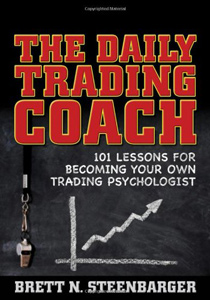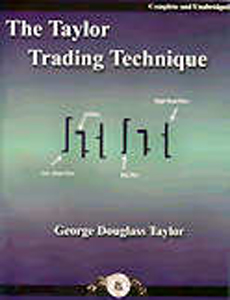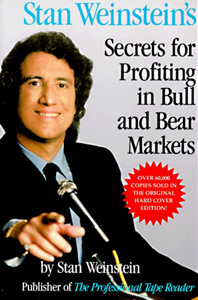Psychology of Trading: Personality Traits

Further Reading
Trading is not just about numbers, trading systems and having a trading edge. Since we’re human (and we aren't using mechanical high frequency algorithmic trading) we have to contend with our psychology while we are trading. You've probably heard or been told many times that it is important to trade the markets as emotionless as possible - just like a robot. Trading must be a boring process of executing your trades. I've heard that advice many times too, but I was reading the appendices of Trend Following when I happened upon an essay written by Brett Steenbarger in the appendices (he wrote The Psychology of Trading. The essay is also available from Brett's website here).
What was interesting about his essay (and book) was the difference in approach to the same conclusion. Have you ever wondered if people in different professions were born to end up in their line of work? Are entrepreneurs born or bred? Are artists, musicians and sculptors born or bred? Are traders born or bred? There are arguments either way: is the underlying factor of who you are in your genes or in how you were raised?
In each of these professions, makes things a whole lot easier if you have certain personality traits and characteristics which come naturally to you to help you along. Some people are extroverts, others are born introverts. Some people love reading, others love to get outside and kick a ball. Some people are able to visualise and draw what they can see, while others can theorise strategy ten steps ahead and win at chess.
Steenbarger recognised this in his book and in his short essay, "Personality and Trend-Following". He gave a short personality test below:
Please write down “yes” or “no” answers to each of the twelve questions before reading further:
- When something goes against you in the market, do you often find yourself venting your frustration?
- Do you enjoy (or as a child did you enjoy) roller coasters or other thrill rides?
- Do you often find yourself procrastinating over work?
- Do you consider yourself moody—sometimes rather up, sometimes rather down?
- Would you generally prefer going out and partying with friends rather than staying at home with a good book or movie?
- Do you often find yourself apologizing to others because you forgot to do something you were supposed to do?
- Are you generally high-strung, tense, or stressed?
- If given the choice at a buffet, would you prefer to try exotic foods you’ve never heard of rather than familiar dishes?
- When you have a task that needs to be done around the house, do you tend to take a quick and dirty approach, rather than a meticulous, painstaking approach?
- After a losing trade, do you often feel guilty or get down on yourself?
- Have you experimented with or regularly used two or more recreational drugs (other than alcohol) in your life?
- Are you often late for appointments or for social plans you’ve made?
Steenbarger then explains what the results to your short test means:
If you indicated "yes" to most or all of questions 1, 4, 7, and 10, you most likely score high on a trait called "neuroticism". Neuroticism is the tendency toward negative emotional experience, and it shows up as anger, anxiety, or depression.
If you responded "yes" to most or all of questions 2, 5, 8 and 11, you probably score high on a trait called "openness to experience". Openness reflects a tendency toward sensation seeking and risk-taking.
If you answered “yes" to most or all of questions 3, 6, 9, and 12, you potentially score low on a trait called "conscientiousness". Conscientiousness measures the degree to which an individual is oriented toward duty, responsibility, and dependability.
Just like any profession, anyone could possibly work very hard and achieve some success. Not everyone is built to be the fastest man on earth. Not everyone has the right body type which encourages speed. Only the person with the right training regime plus the body type which lends itself to speed will succeed. Similarly in trading, according to Steenbarger, the personality trait that would win the race are those individuals who have "high conscientiousness, low neuroticism, and low openness."
Why? People with low openness, according to Steenbarger, "will trade for profits, not stimulation." Which makes sense, as the opposite, I suspect, would trade for profits FOR stimulation, which sounds like a description for problem gamblers. Those with the conscientious trait will "stick with rules and systems." The opposite being or irresponsibility or lack of consistency: trading successfully demands very strong discipline and strong responsibility. Finally, low neuroticism because, they "won’t impulsively enter or exit trades on the whim of emotion." Impulsive people, or people who are easily depressed, angered, bipolar and other overly-emotional traits would find trading like an emotionless robot very difficult.
If you are considering whether to start share trading or forex trading, you must consider your trading psychology: study your personality trait and ask whether this profession is for you. And for those reading this who are a few years into trading, who have a losing account, ask yourself, is this reason enough for me to quit this? For the others who are making a killing in the stock market, you could possibly optimise your weaknesses in your personality to further improve your trading skills.
- How to Trade Forex and Gold Options
- How to Trade the Gold Price and Profit!
- Forex Trading the EUR/USD Pair € EURO and $ US Dollar
- How to Trade Stock Market Indices S&P500
- How to Trade Crude Oil
- Forex Trading Psychology
- What Are Broker Recommendations?
- Free Tickets to Trading & Investing Seminar & Expo ($18) Brisbane 2013
- Stock Calc App
- All About Warrants
- Introduction to Exchange Traded Funds
- Introduction to Exchange Traded Funds: Features
- Introduction to Exchange Traded Funds: Domestic ETFs
- Introduction to Exchange Traded Funds: International ETFs
- Exchange Traded Commodities
- Australian Stock Scan
- Australian Online Share Trading
- List of Trading Books
- Interesting Thoughts about the Australian Dollar
- What's the Meaning of Hawkish?
- Do You Know How To Use the P/E Ratio
- Trading, Religion and Politics - Do They Have Anything in Common?
- Shares that are Volatile that Double and Half in the Short Term
- Telstra (TLS) T3
- Margin Call by E-mail
- The Cost of Holding a Position
- Lack of Disclosure: Compensation from ASX Listed Company
- Unrealistic Returns and Benchmarks
- CMC Markets Down
- Quality versus Quantity Forex Trading
- Woolworths 1H Sales $30.7bn up 3.2%
Date added 31-01-2013 - ASIC Fines CommBank's CommSec
Date added 25-09-2012 - Industry Super Network Calls to Ban High Frequency Trading (HFT)
Date added 22-09-2012 - NAB Launches Online Share Trading Platform
Date added 19-09-2012 - Reserve Bank of Australia Says 23 Countries Holding AUD
Date added 18-09-2012 - Australia Post Digital Mailbox
Date added 10-09-2012 - Winners and Losers of Trading for Week 2
Date added 16-01-2012 - 2012's First Week of the Best and Worst Traded Stocks
Date added 09-01-2012 - 2011's Last Best and Worst Traded Stocks
Date added 05-01-2012 - Best and Worst Pre-Christmas Traded Stocks
Date added 30-12-2011 - Trading Winners and Losers for Dec. 12-16
Date added 19-12-2011 - Best and Worst Traded Stocks for Dec. 5-9
Date added 13-12-2011 - Top 3 Best and Worst Traded Stocks
Date added 05-12-2011 - ASX Glitch Trading Halt
Date added 27-10-2011 - Worst Trade Stocks (and the Best)
Date added 06-08-2011
Top 150 Public Companies Listed on the Australian Stockmarket as at 29/05/2009
- BHP Billiton
- Westpac Banking Corporation (WBC)
- Commonwealth Bank of Australia (CBA)
- National Australia Bank (NAB)
- Telstra (TLS)
- ANZ
- News Corporation (NWS)
- Woolworths Limited(WOW)
- Woodside Petroleum Limited (WPL)
- Rio Tinto
- Westfield Group (WDC)
- Westfarmers Limited (WES)
- QBE Insurance
- CSL
- Newcrest Mining Limited (NCM)
- Origin Energy Limited (ORG)
- Santos Limited (STO)
- AMP Limited (AMP)
- Macquarie Group (MQG)
- Foster’s Group Limited (FGL)




